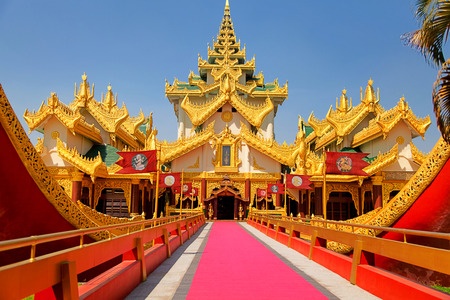7 October, 2015
With the liberalization of Myanmar’s downstream petroleum market, new opportunities abound for foreign investors. We had the opportunity to speak with the Energy, Oil & Gas attorneys at Duane Morris & Selvam to learn more about this new development as well as other areas of investment that the Ministry of Energy has already opened up and those that they may look to liberalize in the future, and here is what they had to say.
Conventus Law: Myanmar’s Ministry of Energy has recently liberalized the downstream petroleum market by opening the door to foreign investors. What type of business association (e.g. foreign direct investment, joint venture, etc. ) will be allowed to invest, and can you explain some of the required parameters and limitations that this type of investment will entail?
Duane Morris & Selvam: Myanmar's three state owned refineries are producing under capacity and therefore, are not able to supply the country's daily fuel requirements. Yangon alone has over 5 million people, combine that with the ban on motorcycles and scooters, non fuel efficient buses and old second hand (primarily Japanese brands) cars, and now an influx of newer cars being imported and sold, demand for fossil fuels is far exceeding supply. As a result of this, the Ministry of Energy through its state owned Myanma Petroleum Products Enterprise (MPPE) (responsible for retail and wholesale distribution of Petroleum Products in Myanmar) have increased fuel imports and are now opening up the market to foreign participation in the form of either joint ventures with the Union Government or distribution agreements with approved private companies (domestically owned by Myanmar Citizens).
CL: Is there any type of vetting process that businesses must undergo before they may bid on the opportunity to enter into a joint venture with the Myanmar Petroleum Products Enterprise, the Ministry of Energy-owned enterprise responsible for retail and wholesale distribution of petroleum products in the country?
Duane Morris & Selvam: This is dependent on the type of entry the foreign investor is pursuing. For instance, if the foreign investor is responding to a invitation to tender by MPPE, then there will be a vetting and beauty contest associated with that process before MPPE will award a contract. On the other hand, if the foreign investor is merely looking to import its products into Myanmar through the use of a private, locally owned company (Distribution Company), then a distribution license is required with respect to the products imported by the Distribution Company, which is approved by the Ministry of Energy as well as an import license for the Distribution Company to import said products.
CL: Are there any other areas within the purview of the Ministry of Energy that have already been partially or fully opened up to foreign investment?
Duane Morris & Selvam: We have already seen the upstream market open to foreign investment, and now the Ministry of Energy understands the need to have foreign participation in the downstream market. We are also seeing foreign participation now in oil storage terminals at the port of Thilawa.
CL: Looking ahead, are there any other areas that the Ministry of Energy may liberalize, and if so, what type of impact will that have on foreign investment and on the country itself?
Duane Morris & Selvam: Is difficult to say on this. At this time it remains a Union Government policy to restrict foreign investors from conducting trading activities, hence the need to contract with local distribution companies (Myanmar owned) to import and distribute petroleum products. The restriction on trading activities has been liberalized to allow foreign investors that are operating in a Special Economic Zone to perform trading activities. Whether this will be extended further and/or applied in the downstream market is still uncertain.
For further information, please contact:
Mark D'Alelio, Director, Duane Morris & Selvam
mdalelio@duanemorrisselvam.com


(1).jpg)



